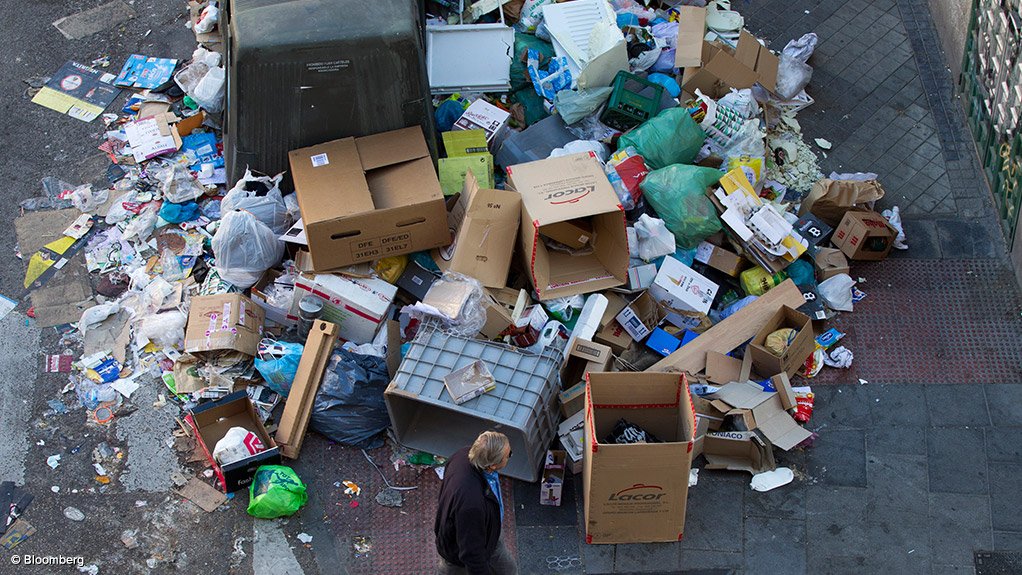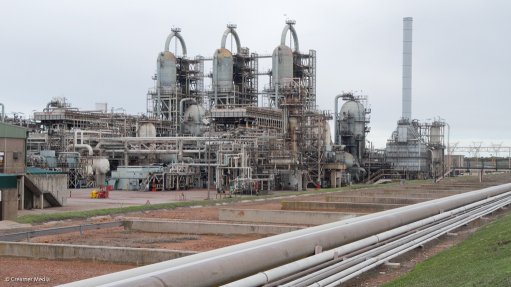Japan shares its insight into solid-waste recycling and management


WASTE MANAGEMENT Industrial policies are required to promote recycling and to decouple gross domestic product growth from waste generation
Photo by Bloomberg
Municipal authorities are crucial to effective solid-waste recycling and solid-waste management in South Africa and worldwide, according to delegates of the Solid Waste Management Seminar, hosted by the Japanese Embassy in South Africa and the Centre for Japanese Studies at the Gordon Institute of Business Sciences.
Japan has significant experience in dealing with waste and promoting recycling, owing to population pressures and limited resources. The country is promoting technical cooperation with developing countries to address environmental challenges, and has made $2-billion available to combat air and water pollution and promote waste management in developing countries, says Japanese ambassador to South Africa Yoshizawa Yutaka.
“In developing economies, Japan is assisting in constructing incinerators and waste-to-energy projects, in which South Africa already has experience, and is also developing and implementing recycling projects and build capacity at municipalities, in which Japan has significant experience and knowledge,” he says.
Japan focused on separation at source of all waste and extended producer responsibility to improve the benefits arising from recycling and to improve the economic case for recycling, says government body Japan External Trade Organisation environment and natural resources studies group director and senior research fellow Kojima Michikazu.
Industrial policies are required to promote recycling and to decouple gross domestic product growth from waste generation.
“Japan had to deal with the problem of waste and its management to enable the country to grow effectively. Besides reduce, reuse and recycle as a framework for its recycling drive, Japan also focused on making waste streams as economically viable as possible,” he says.
Waste is a resource and effectively managing waste generation will also result in better bene- ficiation of natural resources and, thus, more sustainable growth, Kojima emphasises.
The country started by focusing on large sources of waste. It also implemented con- struction material recovery, requiring all constructors to deal responsibly with demolition waste so that some can be reused.
In Japan, local government is responsible for solid waste collection and primary recycling in Japan, with separation at source mandated, says Kojima.
“At one municipality, the mayor told me that there were only two waste products that were not being recycled, used baby diapers and used underwear, but the municipality was investigating how to recycle even these,” highlights Yoshizawa.
While South African conditions differ from those in Japan, government can implement policies and procurement rules to support the use of recycled goods, but demand for recycled goods will decrease dramatically after available stockpiles have been recycled, warns Depart- ment of Trade and Industry Environment and Energy Efficiency director Zakhele Mdlalose.
“In South Africa, there is limited producer responsibility to enable recycling. Local government only collects and disposes of waste, but does not process it, resulting in waste ending up in landfills. Waste stream industry associations manage their waste, but this is not sufficient to enable broad-based recycling.”
South Africa is considering the creation of a recycling industry as a part of the Industrial Policy Action Plan and the National Development Plan, which will improve indus- trial use of recycled materials, potentially through extended producer responsibility and incentives, and contribute to the sustainability of a recycling industry.
“South Africa is considering ways of providing the required technology and support for municipalities to function as the first link in a recycling chain. This may also necessitate imposing costs if landfills are the cheaper option for disposal, rather than recycling. Policy may be needed to change the production-consumption-disposal behaviour in South Africa alongside the creation of a recycling industry,” he highlights.
Recycling can create a vital industry that will provide employment, but the economic case of a recycling industry may need to be sustained by incentives and an enabling policy environment, concludes Mdlalose.
Comments
Press Office
Announcements
What's On
Subscribe to improve your user experience...
Option 1 (equivalent of R125 a month):
Receive a weekly copy of Creamer Media's Engineering News & Mining Weekly magazine
(print copy for those in South Africa and e-magazine for those outside of South Africa)
Receive daily email newsletters
Access to full search results
Access archive of magazine back copies
Access to Projects in Progress
Access to ONE Research Report of your choice in PDF format
Option 2 (equivalent of R375 a month):
All benefits from Option 1
PLUS
Access to Creamer Media's Research Channel Africa for ALL Research Reports, in PDF format, on various industrial and mining sectors
including Electricity; Water; Energy Transition; Hydrogen; Roads, Rail and Ports; Coal; Gold; Platinum; Battery Metals; etc.
Already a subscriber?
Forgotten your password?
Receive weekly copy of Creamer Media's Engineering News & Mining Weekly magazine (print copy for those in South Africa and e-magazine for those outside of South Africa)
➕
Recieve daily email newsletters
➕
Access to full search results
➕
Access archive of magazine back copies
➕
Access to Projects in Progress
➕
Access to ONE Research Report of your choice in PDF format
RESEARCH CHANNEL AFRICA
R4500 (equivalent of R375 a month)
SUBSCRIBEAll benefits from Option 1
➕
Access to Creamer Media's Research Channel Africa for ALL Research Reports on various industrial and mining sectors, in PDF format, including on:
Electricity
➕
Water
➕
Energy Transition
➕
Hydrogen
➕
Roads, Rail and Ports
➕
Coal
➕
Gold
➕
Platinum
➕
Battery Metals
➕
etc.
Receive all benefits from Option 1 or Option 2 delivered to numerous people at your company
➕
Multiple User names and Passwords for simultaneous log-ins
➕
Intranet integration access to all in your organisation


















